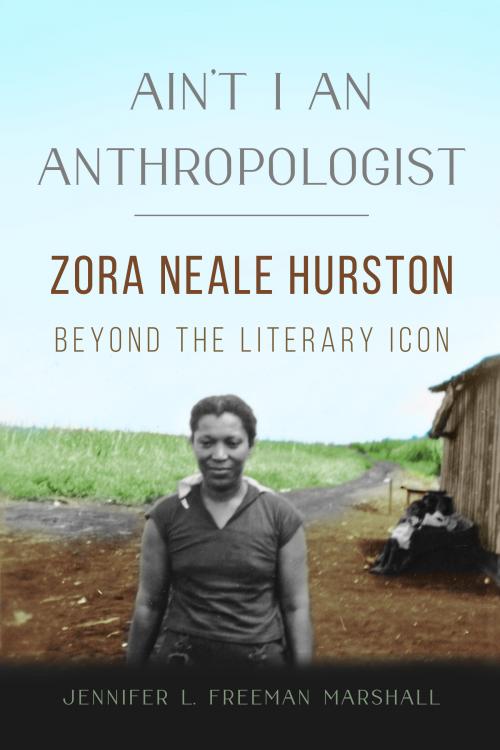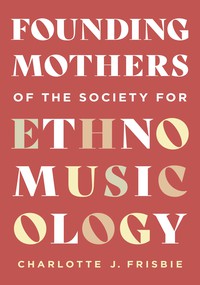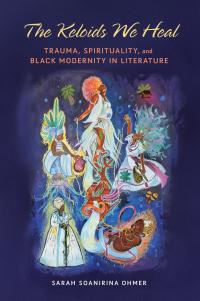
Ain't I an Anthropologist
Zora Neale Hurston Beyond the Literary Icon
Focusing on Hurston’s literary reception and groundbreaking anthropology
Cloth – $110
978-0-252-04496-0
Paper – $27.95
978-0-252-08710-3
eBook – $14.95
978-0-252-05415-0
Publication Date
Paperback: 02/28/2023
Cloth: 02/28/2023
Cloth: 02/28/2023
Series: The New Black Studies Series
About the Book
Iconic as a novelist and popular cultural figure, Zora Neale Hurston remains underappreciated as an anthropologist. Is it inevitable that Hurston's literary authority should eclipse her anthropological authority? If not, what sociocultural and institutional values and processes shape the different ways we read her work? Jennifer L. Freeman Marshall considers the polar receptions to two of Hurston's areas of achievement by examining the critical response to her work across both fields. Drawing on a wide range of readings, Freeman Marshall explores Hurston's popular appeal as iconography, her elevation into the literary canon, her concurrent marginalization in anthropology despite her significant contributions, and her place within constructions of Black feminist literary traditions.Perceptive and original, Ain't I an Anthropologist is a long-awaited reassessment of Zora Neale Hurston's place in American cultural and intellectual life.
About the Author
Jennifer L. Freeman Marshall is an associate professor in the Department of English and Interdisciplinary Studies at Purdue University.Reviews
"Freeman Marshall gives us an outstanding, thoroughly researched, complex analysis of why previous scholars have failed to recognize Hurston’s conceptual contributions to the discipline andmakes a compelling argument for rethinking Hurston’s place in the canons of anthropology." --Journal of Anthropological Research"Doomed to obscurity, Zora Neale Hurston was then resurrected as a 'founding mother' of Black literature and folklore. Yet her pioneering work in African diaspora ethnography and anthropology, especially her work in Haiti, remains little-known. . . . Marshall concludes that Hurston’s refusal to be defined as 'tragically colored' formed her genius as she 'embraces . . . the right to feel and be herself, idiosyncratic and sometimes puzzling, like any member of the human race.'" --Booklist starred review
"A fascinating examination into the work of Zora Neale Hurston as an anthropologist, which has been all but forgotten, especially in comparison to her work as a writer and cultural icon. " --Ms. Magazine
"Freeman Marshall makes clear that Hurston’s reputation as an anthropologist has been undermined by the glamour of her rediscovery and subsequent literary 'canonization' . . . . Freeman Marshall also compellingly argues that 'Hurston’s anthropological work has not been more fully recognized within the field of anthropology in part due to the marginalization of American folklore and in, in particular, African American folklore within the discipline.' Hopefully, with this new study, Hurston’s contributions to anthropology will finally be recognized." --Southern Review of Books
"An insightful read about how academic obscurity can pigeonhole the legacy of Black women thinkers. " --Black Perspectives
"As the public, scholars, writers, and creatives continue to engage with Hurston through ongoing book releases, studies, documentaries, and festivals, Freeman Marshall’s work provides an important intervention that calls us to think about how we reconstruct and deploy Hurston as not only a talented storyteller and incisive ethnographer but also a consummate intellectual." --Another Chicago
"Undoubtedly, Ain't I an Anthropologist should be essential reading for students and scholars of anthropology, as well as African American literature and folklore studies. With its careful and exhaustive documentation of the Black feminist literary and anthropological scholarship on Hurston's oeuvre, this book is both an archive and a treasure trove of information about Zora Neale Hurston that teaches us how to approach her work in new ways." --American Anthropologist
"Freeman Marshall unfolds a Hurston whose anthropological work contributed to her ramified sense of difference and variegation in the lived world. Hurston emerges as situated simultaneously in her selfhood and her experience as a Black woman. As an anthropologist, Hurston tells stories that are 'multiple and ... grounded by ... diverse communities. Recommended." --Choice
"We accept Hurston's arguments today, but they were innovative challenges to powerful figures at the time that she crafted her ethnographic volumes. Freeman Marshall gives us an outstanding, thoroughly researched, complex analysis of why previous scholars have failed to recognize Hurston's conceptual contributions to the discipline and makes a compelling argument for rethinking Hurston's place in the canons of anthropology." --Journal for Anthropological Research
Blurbs
“Jennifer Freeman Marshall combines razor sharp analysis and clear prose that compel the reader to think carefully and critically about why Zora Neale Hurston is lionized in literature and marginalized in anthropology. Like a quilt, Freeman Marshall’s book has a strong frame, an aesthetically pleasing design, and an impeccable yet creative logic.”--Lee D. Baker, author of Anthropology and the Racial Politics of Culture













